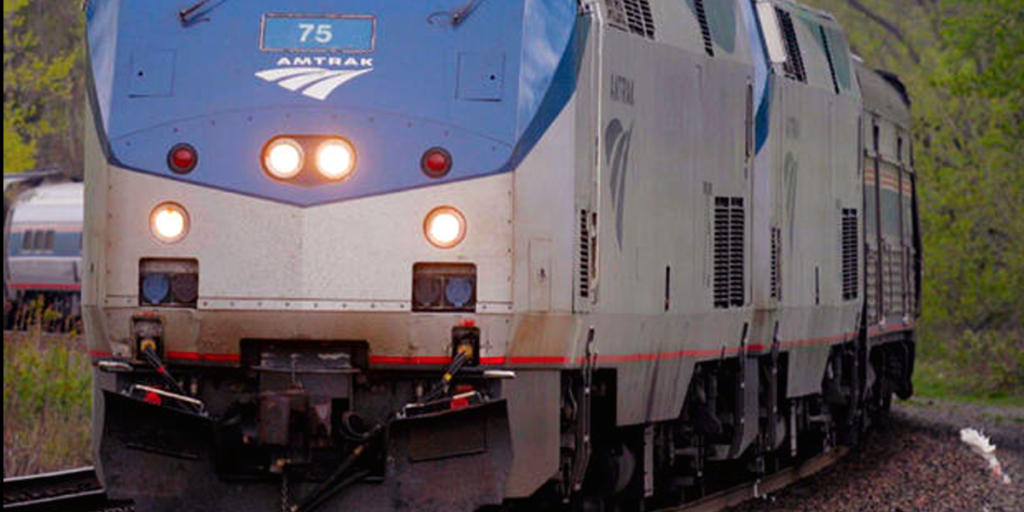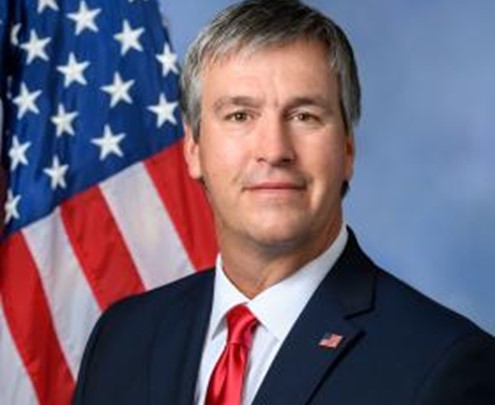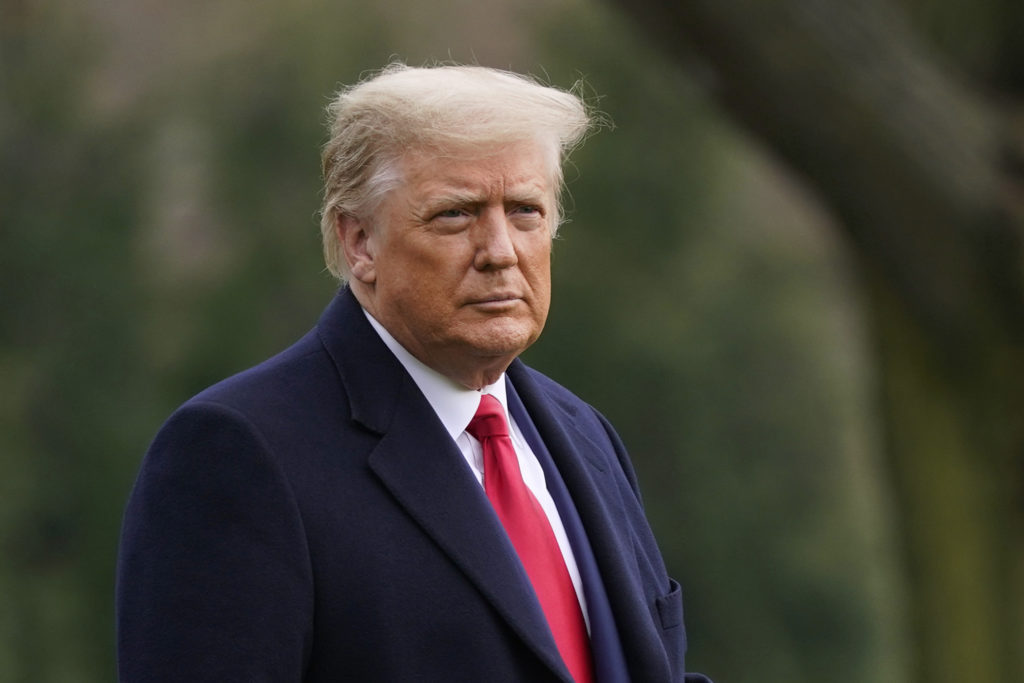Alabama legislators urge caution on Amtrak decision

All nine members of the United States congressional delegation from Alabama sent a letter to Cynthia Brown, Chief of the Section of Administration at the Surface Transportation Board, discouraging a decision that would mandate Amtrak service along the Gulf Coast without a needed feasibility study. The study would measure potential consequences for the national rail network and supply chain. The letter also cites a number of infrastructure improvements that would be necessary to mitigate the effects of passenger rail service on the Port of Mobile’s operations and related freight rail traffic. The congressional delegation letter was signed by U.S. Senators Richard Shelby and Tommy Tuberville, along with U.S. Representatives Robert Aderholt, Mike Rogers, Mo Brooks, Terri Sewell, Gary Palmer, Jerry Carl, and Barry Moore. According to the Surface Transportation Board, the National Railroad Passenger Corporation (Amtrak) filed an application with the Board on March 16, 2021, seeking an order requiring CSX Transportation, Inc. (CSXT), and Norfolk Southern Railway Company (NSR) to allow Amtrak to operate additional intercity passenger trains, consisting of two round-trips per day, over the rail lines of CSXT and NSR between New Orleans, Louisiana, and Mobile, Alabama. The Board announced that it will hold the first phase of a public hearing in this docket on February 15, 2022. Shelby stated on Twitter, “I led the AL delegation in a letter to the STB as it considers mandating passenger service on the Gulf Coast – which without the necessary data & infrastructure improvements, threatens to significantly impact Mobile’s Port & related freight rail traffic.” The letter reads in part, “As proposals to initiate passenger rail service in the Gulf Coast have been discussed, multiple entities have understandably expressed concern about the impact such service would have on commerce in and around Mobile, including federal and state government officials, freight operators, the Alabama State Port Authority, and several of the Port of Mobile’s customers. In response to these concerns, Amtrak, in conjunction with CSX and Norfolk Southern, agreed to conduct a joint feasibility study to determine the impact passenger rail service would have on freight operation in Mobile. … Despite this agreement among all parties, Amtrak announced plans to begin passenger rail service without completing the ongoing study.” The members continued, “As a delegation, we are particularly concerned about the effects of Gulf Coast passenger rail service on the Port of Mobile, which in recent years has experienced tremendous growth. … In sum, a decision by the Board to mandate Amtrak service in this case will have significant consequences for the national rail network and supply chain, as well as set a precedent for expansion of Amtrak service. We urge you to uphold the Board’s long-standing commitment to an efficient and reliable rail network.” The letter also argued that making sure infrastructure improvements would priority to the project. “If the Board mandates service, it should ensure that this unprecedented level of funding is used by Amtrak to pay for the necessary infrastructure improvements to support its proposed service and that shippers and entities who rely on the freight and intermodal rail network are made whole. Our ports and shippers should not have to bear the cost of facilitating Amtrak’s passenger rail service expansion, and the Board should ensure any decision sets a precedent of safeguarding our country’s shippers and ports,” the letter stated.
Barry Moore seeking to improve hurricane insurance protection for farmers

Rep. Barry Moore wrote a letter to Secretary of Agriculture Thomas Vilsack requesting an update on the Hurricane Insurance Protection – Wind Index Endorsement (HIP-WI) and amending it from an all-or-nothing system to a tiered system. After listening to stories from farmers about the losses they’ve suffered from hurricanes, Moore is asking for a more improved system of administrating hurricane insurance funds. Currently, the full value of a HIP-WI endorsement is only paid if a county or a neighboring county is within the area of sustained hurricane-force winds from a named hurricane based on data from the National Hurricane Center (NHC). Moore is requesting the system gets changed to a tiered system so that farmers can purchase protection from winds caused by a hurricane, even if the winds are below hurricane force in their county. “I know firsthand the damage that a hurricane can do to a farmer’s crops, and fortunately, in 2020, many counties in the Second Congressional District of Alabama were able to take advantage of the Hurricane Insurance Protection made available to them,” wrote Moore. “However, the counties that were not triggered by this all-or-nothing system still had extreme losses but were not eligible for HIP-WI. If the product was expanded to include a tiered system, farmers could purchase protection from devastating winds caused by a named hurricane, even if the winds are below hurricane-force within their county.” “We appreciate Congressman Moore’s steadfast support of farmers,” stated Mitt Walker, director of the Governmental and Agricultural Programs Department of the Alabama Farmers Federation. “He understands so much of what farmers face each growing season is completely out of their control, especially when it comes to weather events such as hurricanes. We appreciate his efforts to ensure farmers have a variety of risk management tools that are effective in their time of need.”
Kay Ivey announces $250k in grants to bolster public safety and fund law enforcement

Gov. Kay Ivey has awarded more than $250,000 to fund public safety and law enforcement across the state. These awards will aid in improving public safety and upgrading equipment in 12 Alabama jurisdictions. “In Alabama, we back our men and women in blue. I am proud to continue directing funds to these folks who are out there protecting our communities every single day,” said Governor Ivey. “Our law enforcement members put their lives on the line, and it is important we continue doing what we can to support them. I know these funds will go a long way in bolstering our public safety efforts.” The Alabama Department of Economic and Community Affairs (ADECA) will administer the awards with funds supplied to the state through the U.S. Department of Justice. ADECA administers a wide range of programs that support law enforcement, victim programs, economic development, water resource management, energy conservation, and recreation. “ADECA stands with Governor Ivey in her appreciation of our law enforcement officers and how much they mean to our communities,” said ADECA Director Kenneth Boswell. “We are pleased to be a part of the process that equips officers to perform their duties safely and effectively.” Those awarded grants are: Jackson County – $24,000 to enable the Jackson County Sheriff’s Department to purchase bullet-proof vests. Centre – $17,687 to purchase electronic stun guns for the Centre Police Department. Parrish – $23,945 for the Parrish Police Department to purchase laptop computers for patrol vehicles. Irondale – $23,899 to purchase miscellaneous public safety equipment for the Irondale Police Department. Jemison – $16,210 to enable the Jemison Police Department to purchase electronic stun guns, weapons, and alcohol-detection breath analyzers. Tallapoosa County – $24,000 to enable the Tallapoosa County Sheriff’s Department to purchase defibrillators to assist patients in cardiac arrest. Autauga County – $23,800 to enable the Autauga County Sheriff’s Department to buy laptop computers for patrol vehicles. Prattville – $24,000 to help the Prattville Police Department to purchase portable radios compliant with a new and now widely used means of radio communications. Coosada – $23,183 to purchase weapons, radar devices, and miscellaneous equipment for the Coosada Police Department. Butler County – $24,000 to purchase laptop computers for patrol vehicles for the Butler County Sheriff’s Department. Geneva County – $23,726 to upgrade equipment in Geneva County Sheriff’s Department vehicles. Fairhope– $24,000 to purchase a patrol vehicle for the Fairhope Police Department.
Donald Trump makes commercial to promote Alabama’s voter ID campaign

Alabama Secretary of State John Merrill announced that former President Donald Trump has made a video promoting voter registration and photo voter IDs. Merrill released a preview of the 30-second commercial today. The video was made when Merrill visited Trump at Mar-a-Lago in November. Merrill stated on Twitter, “I am so excited to announce that the 45th President of the United States, Donald J. Trump, has agreed to help us promote voter registration & photo ID in the state of Alabama in 2022!!” “I’m Donald Trump and I love Alabama,” Trump says in the video. “As many of you know, there are few issues facing our nation as important as election integrity and election fraud. This is why the people of the great state of Alabama must work together to make it easier to vote and harder to cheat. “So get out and register to vote and get a photo ID so you can make your voice heard and decide the future of our great county.” Trump received 62% of the vote in Alabama in 2016 and 2020.
Joe Biden has long-term inflation plan, but voter patience short

President Joe Biden came into office with a plan to fix inflation — just not the particular inflationary problem that the country now faces. He believes that a cluster of companies controls too many industries, which reduces competition for both customers and workers. That leads to higher prices and lower wages in what the White House says is an average cost of $5,000 annually for U.S. families. Biden is now trying to remedy the situation with 72 distinct initiatives — everything from new rules for cell phone repairs to regulations on meatpacking to more merger reviews. “The dynamics of the modern American economy — the increased consolidation and lack of competition — has distorted market incentives in important ways,” said Brian Deese, director of the White House National Economic Council. “The president gave us the direction that he wanted us to come back and say what could we do to address this issue of consolidation across industries in a way that would be durable.” But even administration officials acknowledge that the initiatives outlined by the president’s seven-month-old competition council aren’t designed to quickly stop the 7.5% inflation that’s frustrating Americans and damaging Biden’s popularity. Furthermore, business groups dispute the fundamental premise that competition has faded within the U.S. economy, and they are prepared to challenge the administration’s new initiatives in court. “It will strangle economic growth,” said Neil Bradley, executive vice president and chief policy officer of the U.S. Chamber of Commerce. “Ironically, what this will do is actually lead to more inflation.” Part of Biden’s dilemma is that reorienting a bureaucracy to promote competition takes time, and voters want to see inflation — running at a 40-year peak— start dropping now. Voters feel the bite of inflation with every trip they make to the grocery store or the gas station, yet the president is traveling the country to discuss solutions such as competition and new infrastructure that predate the current predicament and would have a much more gradual impact. America’s current inflation woes stem from the pandemic. Supply chains for computer chips, clothes, furniture, and other goods are under stress. At the same time, consumer demand has surged after a historical amount of government aid flowed into the economy. Despite efforts to get the kinks out of the supply chain, price increases have stayed high in recent months instead of fading, as many initial forecasts suggested. That has the Federal Reserve ready to increase interest rates to lower inflation. In a January survey by the University of Chicago, two-thirds of leading economists said that the concentrated power of companies does not explain the current rash of inflation. New York University economist Thomas Philippon has welcomed the administration’s approach — while allowing it would do little to bring down prices. As the author of the 2019 book, “The Great Reversal: How America Gave Up on Free Markets,” Philippon is the source of the administration’s statement that market concentration places a $5,000 drag on an average family. What Philippon observed was that other nations had embraced a level of antitrust enforcement and competition that no longer exists in America, resulting in lower costs for cell phone service, internet, and airline tickets in Europe relative to the U.S. “As a way to fight current inflation, it is unlikely to have a big impact in the short term, but it can still be useful,” Philippon said. “I think of it more as a positive side effect of something that should be done in any case.” The Biden administration contends that even if the lack of competition didn’t directly trigger the recent spike in prices, it has contributed to inflation. The White House Council of Economic Advisers blogged in July about how more sectors of the economy are effectively controlled by a smaller number of companies. It cited studies that show how mergers led to higher prices for hospital services, health insurance, airline tickets, and beer. It also documented a decline in government reviews of mergers and noted that the 2020 federal lawsuits against Google and, separately, Facebook were the first major monopolization cases in 22 years. After the second meeting of the government-wide competition council in late January, the White House charted its progress. The Food and Drug Administration has proposed selling hearing aids over-the-counter, “lowering their cost from thousands of dollars to hundreds of dollars,” according to a White House statement. The Federal Trade Commission will increase enforcement against restrictions that companies place on people repairing their own electronic devices. The Transportation Department figures it can cut prices of airline tickets in the New York City area by opening up 16 slots to a low-cost carrier at the airport in Newark, New Jersey. For proof that more competition can lead to lower prices, administration officials cite the example of eyeglasses. Before 1979, people could only buy eyeglasses from doctors who wrote their prescriptions. The FTC then passed a rule that forced doctors to give out prescriptions, causing the average price of glasses to fall 30.4% to $178 (in 1979 dollars). The issue does not break cleanly along partisan lines. Republican Sens. Todd Young of Indiana and Kevin Cramer of North Dakota have sponsored a bill to limit companies from using non-compete agreements, which can keep workers from going to another employer for more money. But many in the business sector dispute Biden’s core premise that the U.S. economy has become less competitive. They argue that mergers allow companies to operate more efficiently, and the resulting gains in productivity benefit consumers. The U.S. Chamber of Commerce says market concentration had waned by 2017, and it intends to challenge some of the administration’s regulatory actions in court. Airlines for America, a trade association, says that consumers are better off under industry consolidation. In inflation-adjusted terms, it said the average price of a roundtrip ticket has fallen nearly $100 since 2010 to $306 in 2020. The Business Roundtable, a group representing CEOs, said that at a time of high inflation, “more burdensome government regulations are not what the economy or Americans need.”


